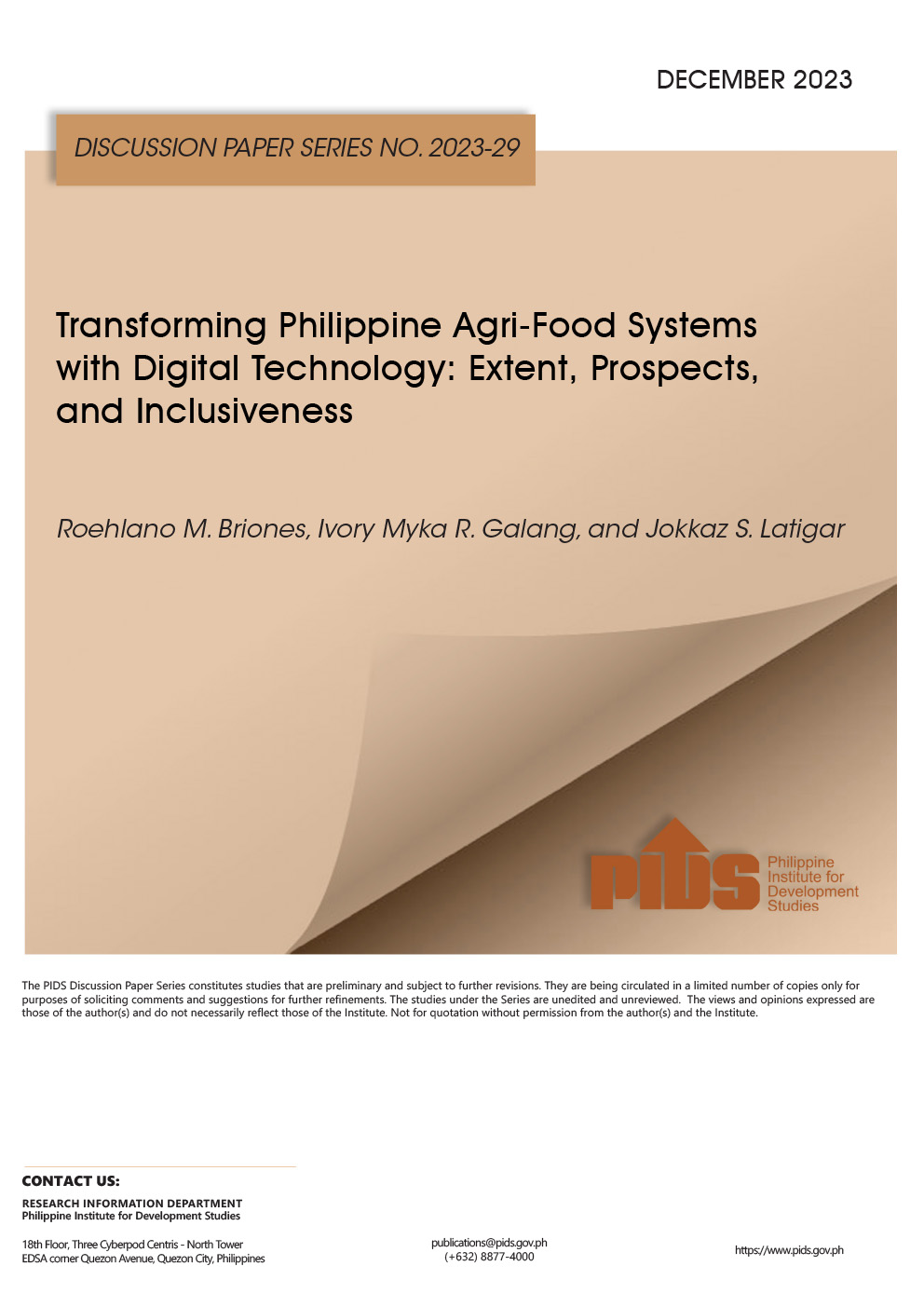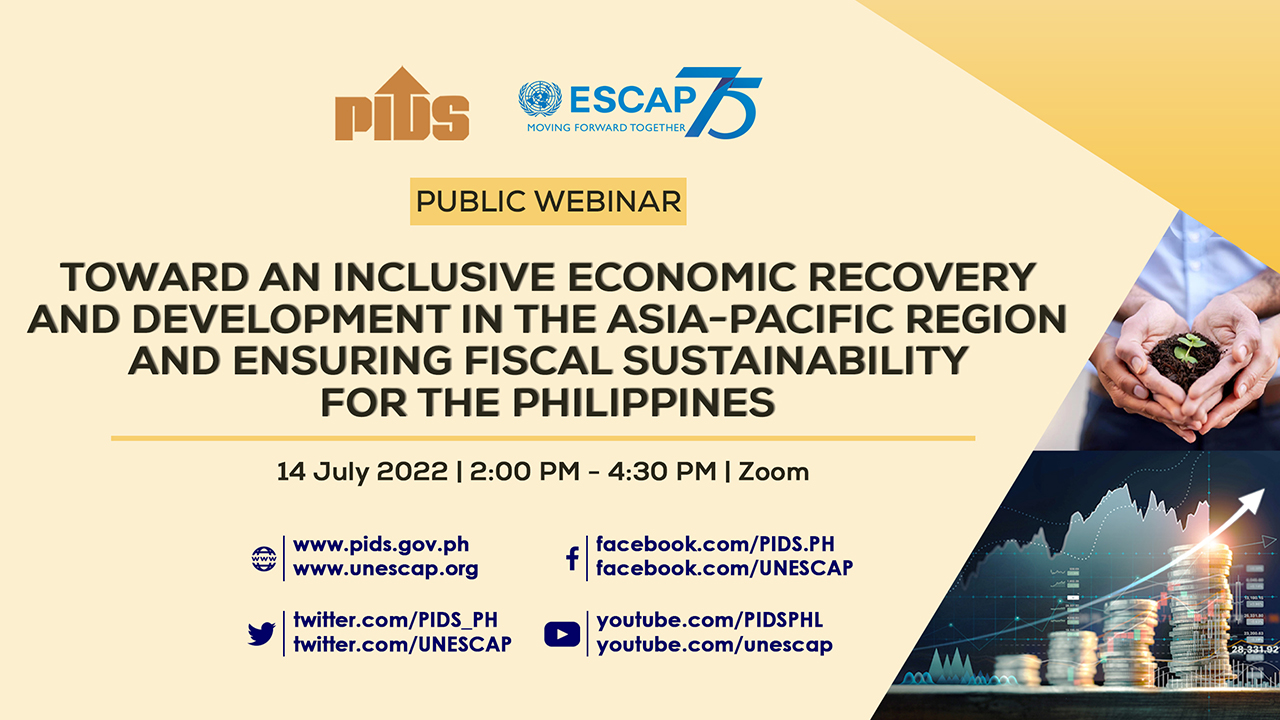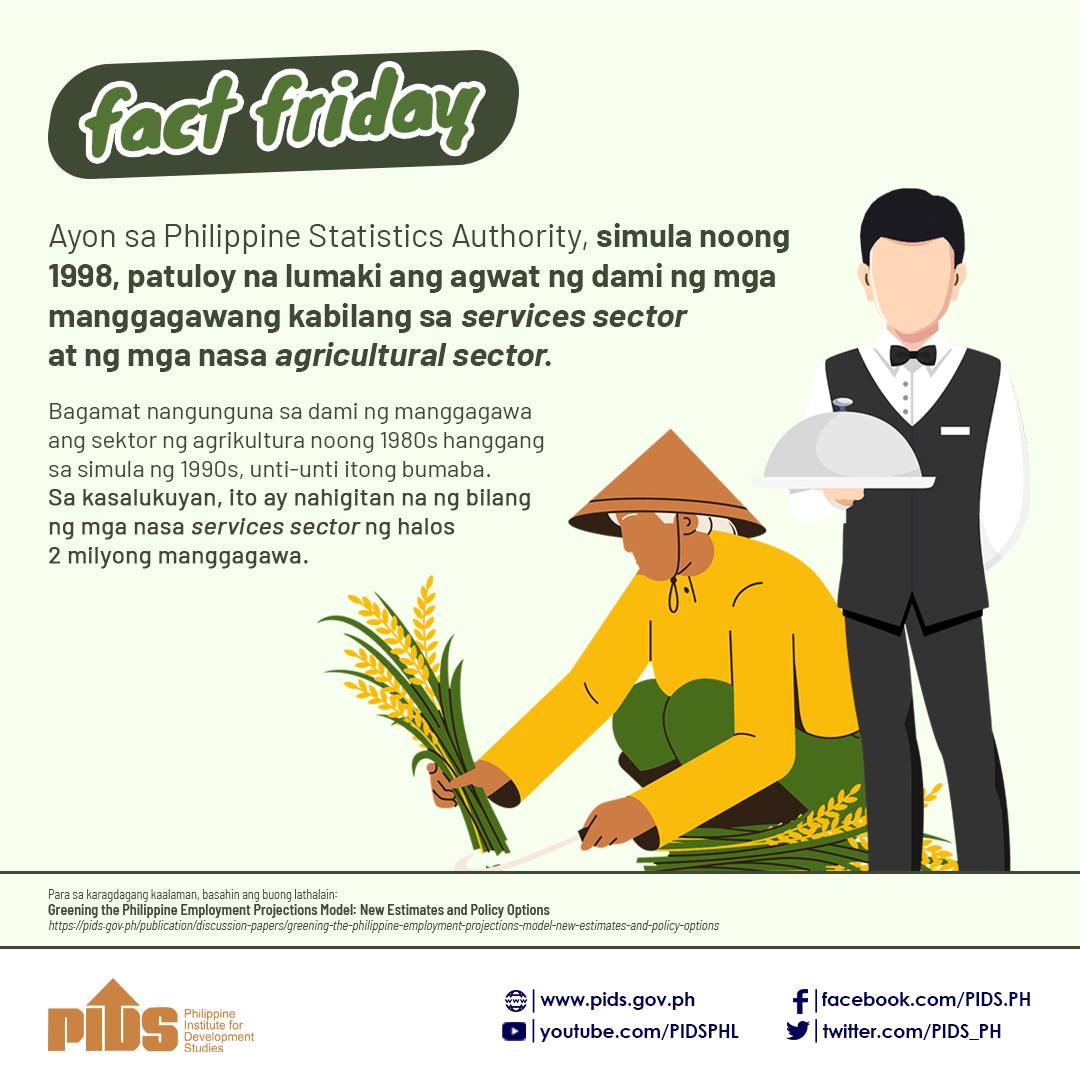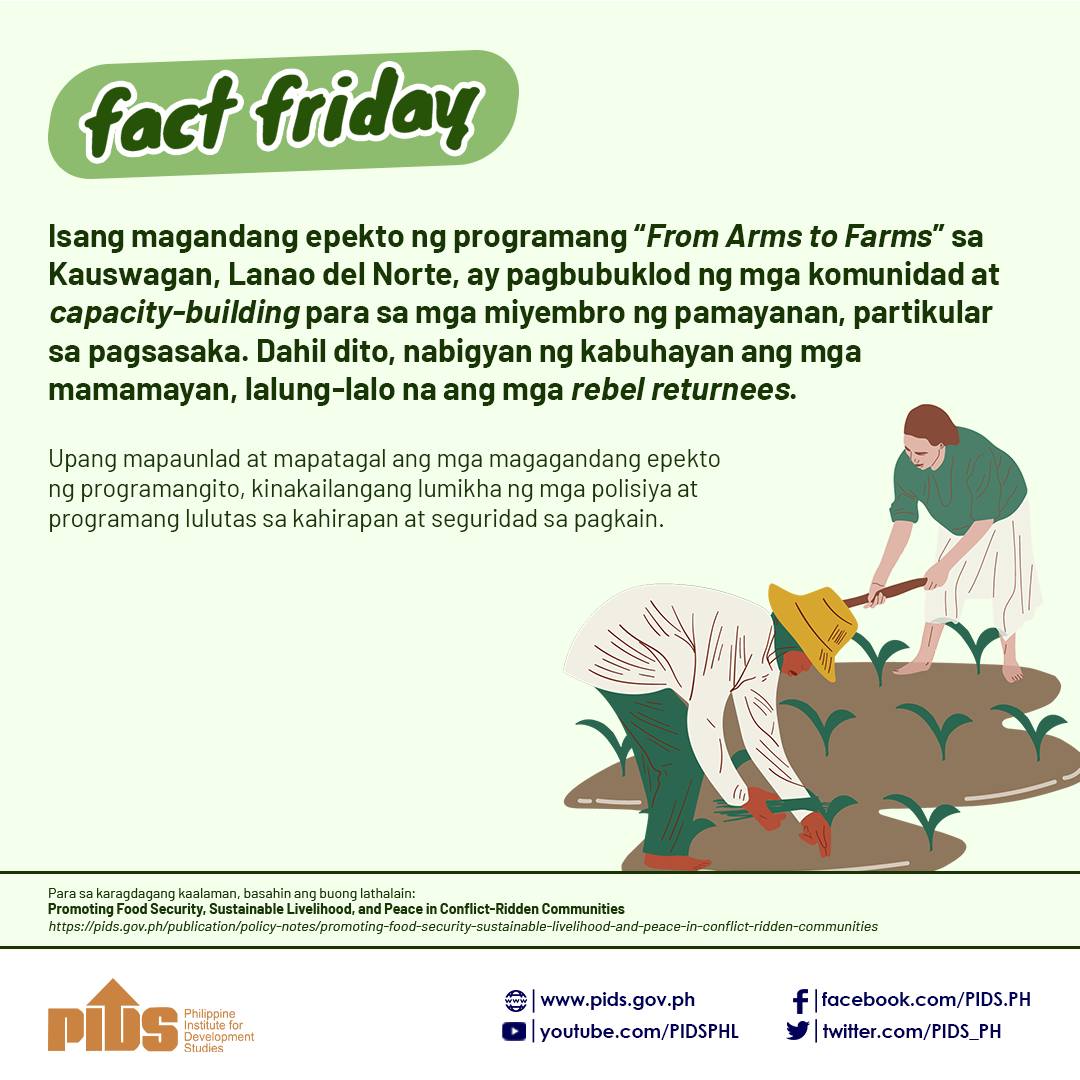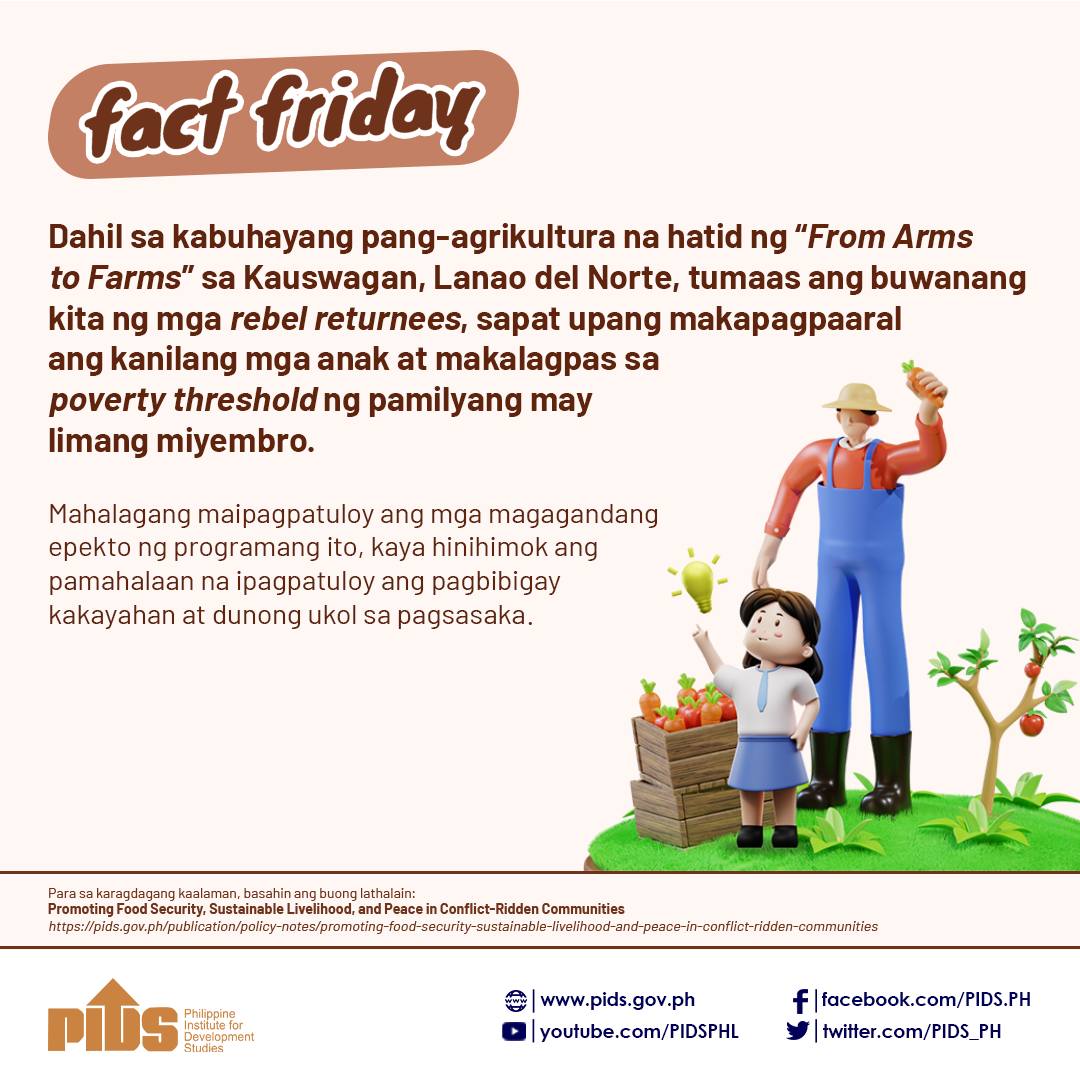
As a major developing economy grappling with surging rice prices, countries in Asia, particularly the Philippines, are facing mounting challenges in securing access to affordable, nutritious food. In response, experts convened to share insights from agricultural advancements, focusing on how technology, effective governance, and sustainable practices can enhance productivity and strengthen resilience.
This discussion took center stage at the morning session of the recent agricultural conference conducted by the Philippine Institute for Development Studies (PIDS), in partnership with the Asian Development Bank (ADB), the Southeast Asian Regional Centre for Graduate Study and Research in Agriculture (SEARCA), and the United Nations Development Programme (UNDP). With the overall theme, “Agricultural Development for Food Security: Addressing Challenges to Technological Transformation, Sustainability, and Good Governance”, the conference addressed critical challenges to food security, emphasizing the role of innovation and good governance in shaping a sustainable agricultural future.
The morning session featured a presentation by Kobe University Professor Keijiro Otsuka, who presented a comprehensive analysis on the evolution of rice cultivation in Sub-Saharan Africa, highlighting the global impact of the Green Revolution.
Otsuka’s research examined how the Green Revolution’s rice innovations primarily benefited irrigated and more favorable regions, while marginalized areas, often prone to droughts and floods, received limited direct benefits. He found that labor migration from poorer areas to more productive regions played a vital role in wage equalization, providing significant economic advantages to disadvantaged communities.
Otsuka also discussed the successful transfer of rice technologies from Asia to Southeast and South Asia, but highlighted the challenges of implementing these technologies in Sub-Saharan Africa (SSA), where rice cultivation is less established. Since the early 2000s, organizations like the Japan International Cooperation Agency and the Coalition for African Rice Development have focused on expanding rice production in SSA. Recent studies have shown that rice training programs significantly improved yields. Otsuka emphasized the need for education-based initiatives, similar to the role of the International Rice Research Institute in Asia, to drive sustainable agricultural growth in Africa.
“Our studies found that the impact of rice cultivation training is not only effective but also sustainable, with information spreading from training participants to non-participants,” Otsuka stated. “In other words, sub-Saharan Africa needs educational centers to achieve the full benefits of the Green Revolution, as was recognized more than 50 years ago,” he concluded.
Meanwhile, in marking the critical milestones in China's economic transformation, China Center for Agricultural Policy Director Jikun Huang also shared an extensive analysis of China's evolution over four decades. Huang's insights underscored how China successfully navigated its agricultural reforms, offering valuable lessons for the Philippines and other Asian nations. He emphasized China's experience balancing rapid growth with sustainability, outlining the major driving forces behind its success.
According to Huang, China's agricultural transformation underscores the critical role of government intervention in addressing key challenges such as income disparity between rural and urban areas, food security, and environmental degradation. He outlined government strategies to tackle these issues, including investments in biotechnology, water conservation, and the development of high-standard farmland. Huang also discussed China’s efforts to mitigate agriculture’s environmental impact through policies aimed at reducing chemical fertilizer use and promoting sustainable farming practices.
“The speed of transformation is different among [Asian] countries, but every country is moving in this direction, and that’s important,” Huang noted. The findings from their studies also highlighted the critical role of institutional policy investment in promoting inclusive transformation. To conclude, Huang stressed that transformative change, especially in rural and intensive sectors, is crucially important.
Both presentations paid tribute to Former PIDS Senior Research Fellow Dr. Christina David, whose groundbreaking research has significantly advanced agricultural development and policy. The conference continued in the afternoon with parallel sessions and a closing session that explored topics such as agricultural transformation, natural resource constraints, sustainability, programs, policies for agricultural development, and political economy and governance.
Watch the recording of the conference here: https://bit.ly/pidslive110624-Agri.###


